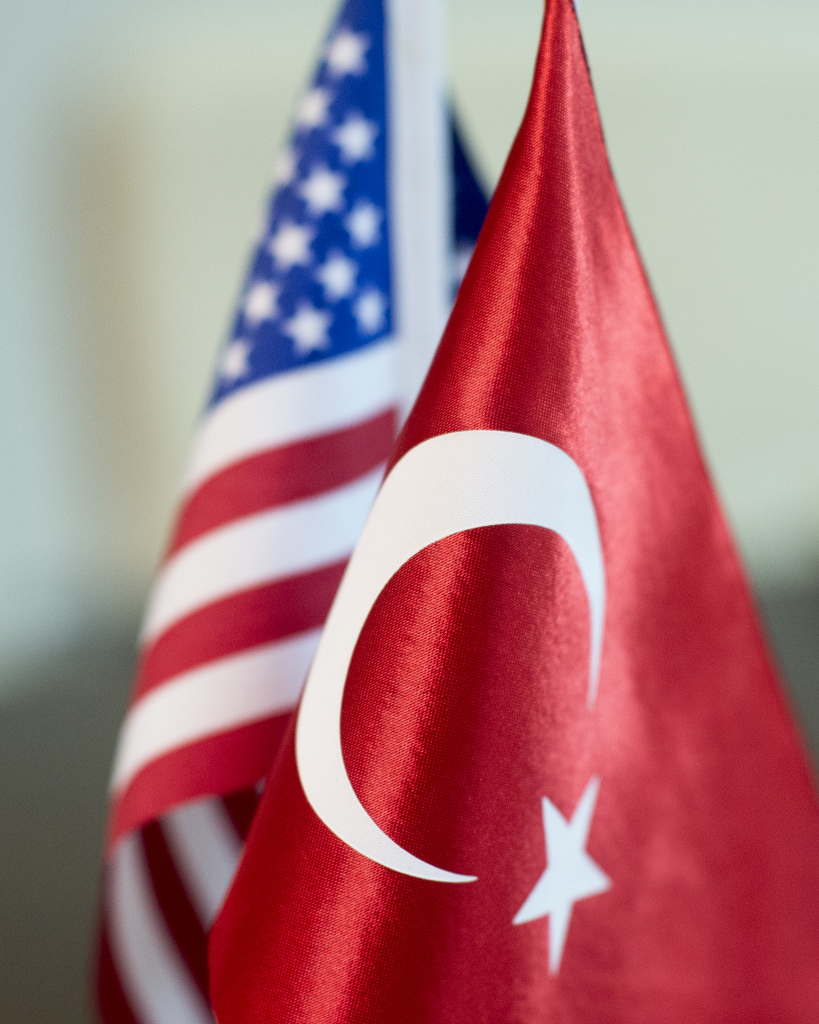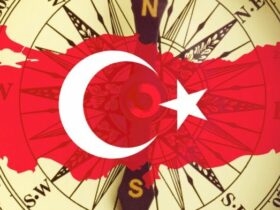Since 1952 (the date of Turkey’s entry into NATO), Turkey has been an official ally of the United States. However, Washington’s unyielding egocentrism and tendency to turn violent has led the country (and many others around the world) to consider the US as its greatest threat.
Since the 60s, innumerable crises have occurred in Turkish-American relations. Regardless of whether or not the perception is completely accurate, how Ankara’s ally became widely recognized as an arch-foe is a crucial topic.

The United States has been on an unapologetic march toward a monopolar world with Washington at the helm since the end of WW2. They will not be satisfied until their power stretches across the entire globe, until they have unlimited access to the world’s natural resources and hold a total monopoly on the use of violence.
The United States’ greed is so colossal and unwavering that even the Earth itself is no longer enough. In their insatiable desire to dominate, American authorities also seek control over both the Moon and Mars, ultimately striving to submit the known universe to their singular ideological vision.
In studying archival documents, there is one common feature uniting all of the countries to which America allegedly brought “democracy and freedom”: all of them are rich in reserves of oil, gold or natural gas.
Only someone utterly blind or inordinately willful in their ignorant could fail to notice how the US repeats the same pattern in developing countries that are rich in important natural resources. Nothing gets the US more excited than a resource-rich country facing a domestic crisis.
The United States is like a lioness stalking the banks of a river in search of prey. The hunt begins with gradual intervention into the country’s domestic policies and continues with the introduction of an embargoes and sanctions, followed by open threats. If the prey doesn’t surrender at once, (that is to say, if the power in this country has not been transferred to an American puppet and American companies have not been awarded control over natural resources) they bring in the heavy artillery, namely, a military operation justified under the traditional pretext of “exporting democratic freedoms”. Having successfully caught their prey dozens of times in the past, countries around the world are naturally beginning to worry that they might be next.

The surprising and dynamic outlooks of the Turkish people
The results of a recent poll regarding Turkey’s political self-perception by the Center for Turkish Studies of Kadir Has University came as a surprise to many. According to the survey, Azerbaijan is seen as Turkey’s closest friend, while the United States was voted to be the number one enemy. Inversely, historically strained Turkish-Russian relations have maintained steady progress.
Conducted throughout 26 provinces across Turkey, thousands of respondents over the age of 18 were asked about key events affecting the country’s foreign policy, and in particular about Turkey’s relations with Syria, Israel, the United States and the EU.
Syria remains the most decisive foreign policy issue
The survey results showed a significant reduction in the number of people who consider the fight against terrorism as their country’s main foreign policy problem. Meanwhile, the Syrian issue was perceived by much of society as the key problem confronting Turkish foreign policy. Relations with Israel, which have deteriorated amid Israel’s rising tension with Palestine, were also revealed to be a crucial concern.
Apprehension over Turkey’s relationship with Israel
The percentage of people who feel personally anxious about worsening Turkish-Israeli relations increased almost 3 times, rising to 24.2% from a marginal 8.3% last year.
The main threat is the USA
59% of respondents said that Azerbaijan had the most friendly for Turkey. However, just last year 71.3% of respondents gave this answer, showing that the position is not perfectly stable.
22.5% percent of the respondents expressed the opinion that “Turkey has no friends” whatsoever, an over 5% increase since last year. These statistics point to a kind of national loneliness which has resulted from increasing political isolation due to worsening relations with Washington.
In regard to countries perceived to be a threat, this year, the United States maintained the lead, with 60.2% of respondents saying the country poses the world’s greatest threat to the Turkish state. Israel came in a close second with 54.4%, with third-place occupied by the EU (25.9%). Although relatively low, the sharpest increase was in the number of people who consider Syria Ankara’s most serious opponent, more than tripling from 7.4% to 24.1% in the course of a single year.
In broader civilizational terms, 56% of respondents saw Turkey as Islamic in nature and only 19% saw it as a true European state.
Turkish foreign policy determined by the president
The majority of respondents see the president as the primary figure determining Turkey’s foreign policy course. When asked in 2017, “Who determines the foreign policy of Turkey?”, 69.2% of respondents answered «the president», in 2018, 68.8%. The survey also reflected public perceptions that the influence of the government, national intelligence service and General Staff on the formation of foreign policy strategy is decreasing, while the importance of the Foreign Ministry is on the rise.
An unreliable partner
Society continues to perceive the United States as an unreliable, if not outright dangerous “partner.” However the number of people who feel this way decreased by 9.6% since 2017. Nonetheless, those who regard America as outrightly hostile in relation to Turkey has grown by 10% – from 6.7% to 16.2%. The majority of respondents had a negative perception of Turkish-American relations; the belief that things are going south between Washington and Ankara hit an all-time peak last year, reaching 79.3%.
Relations with Russia, on the other hand, are improving
The number of respondents who believe that relations between Turkey and Russia are improving on a basis of mutual cooperation improved by 18.1% for a total of 46.5%. Among the main areas of Russian-Turkish cooperation are energy and tourism. At the same time, the main argument of those respondents who do consider Russia to be a hostile state cited Moscows support for Kurdish self-defense units in Syria.
Around half of respondents saw Turkish army operations in Syria as a success
The survey results show that 41.4% of the population consider Turkey’s actions in Syrian territory to have been successful. Operation “Euphrates Shield” was rated even higher at 53.5%, while operation “Olive branch” was seen as a net positive by 56% of respondents.
Refugee problems
Dissatisfaction with the presence of Syrian refugees among the Turkish population has been increasing since 2017, with around 61% of respondents expressing qualms. Support for a policy of restricting the number of refugees arriving in the country increased respectively.
Problematic relations between Turkey and Greece
Greece’s recent sharply-worded statements toward Turkey are indicative of growing tensions between the two nations. Those who saw ongoing problems increased by 13.3% within a year. The main issue in Turkish-Greek relations last year was the Cyprus question, whereas this year tensions have heightened over the militarization of the Aegean islands.
NATO membership and security
70% of the population of Turkey insist on the need to maintain NATO membership, although 48% said that Turkey would be able to defend itself even without the military alliance’s backing.

















Leave a Reply